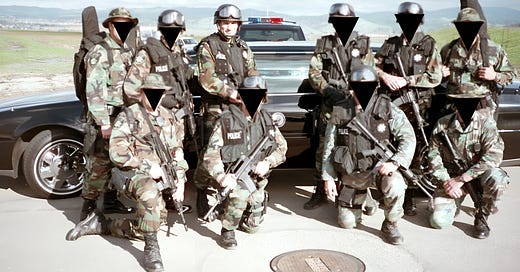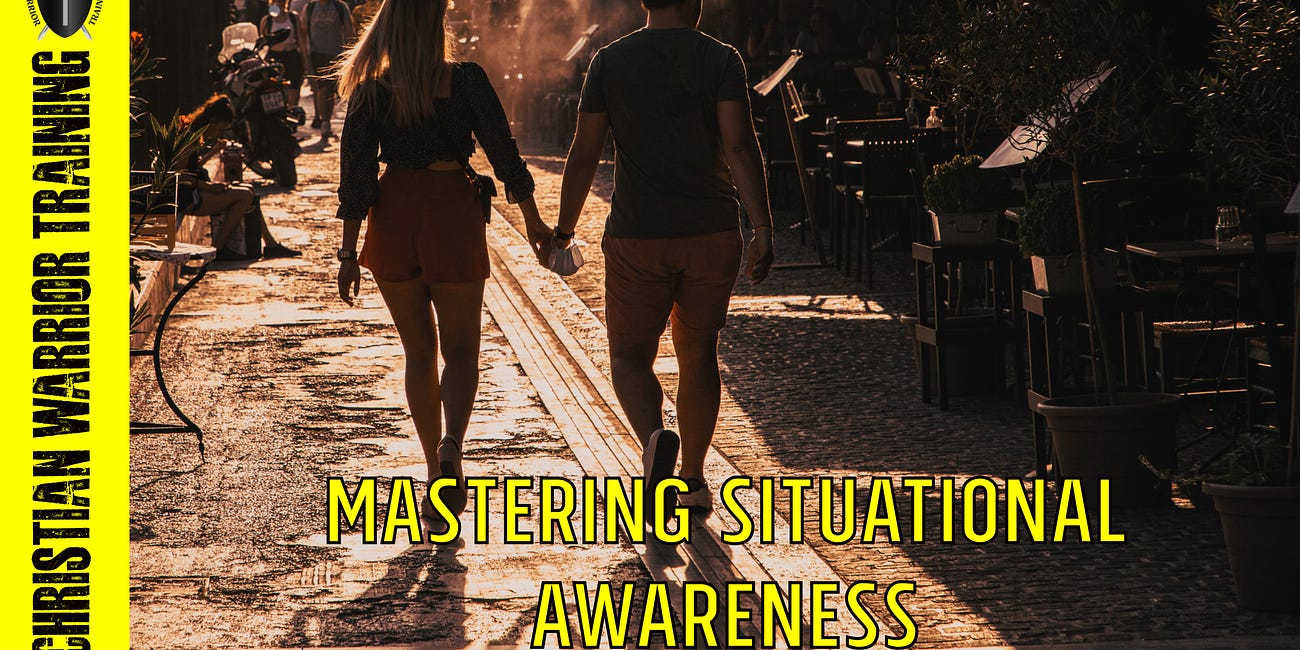What Can Church Security Teams Learn from the Assassination Attempt on Former President Trump
On July 13, 2024, former President Donald Trump survived an assassination attempt at a campaign rally held at the Butler Farm Show grounds in Butler, Pennsylvania. As Trump began his speech, gunfire erupted from an elevated position, resulting in the deaths of the shooter and one other person, and critically injuring two attendees. President Trump survived with a grazing wound to his ear, one bystander was critically wounded, and another succumbed to his injuries.
Having served on a SWAT team overseeing Vice President Cheney during his first visit after the 9/11 attacks and protecting several other high-profile dignitaries, I have firsthand experience with the complexities of such security operations. Observing the incident, it was evident that the Secret Service agents on duty were highly skilled, but they were severely undermanned for such a high-profile event

There were critical lapses in planning, and vital information from citizens may have been overlooked. As I compare what happened yesterday to the responsibilities of a church security team, it's important to remember that the situation is still developing. More information will emerge, and initial details may be corrected. However, it is imperative to discuss the events and what can be done to prevent similar incidents from occurring at your church, whether it involves your pastor, congregation, or visiting dignitaries.
Security Planning and Protocols
As attendees entered the event, they were checked for weapons by the United States Secret Service (USSS), ensuring that no one was armed. Typically, USSS officers and local law enforcement staff the inside of the venue to maintain safety and control crowds as they become excited and motivated. Outside the event, the surrounding area is monitored by counter-sniper teams, which can include local and state law enforcement to supplement USSS counter-sniper and counter-assault teams.
In this case, a building within a few hundred feet was left unobserved and unsecured. Although local law enforcement was present in the area of the building, they missed the shooter entering and ascending to the roof to gain a vantage point on Trump. For your church security team, this underscores the importance of managing not only the immediate vicinity of your service but also the surrounding areas. Conduct a thorough walk around your church and identify potential threat areas. Consider the perspective of an attacker: How might they target your church? Are there tall buildings nearby that could serve as platforms for an active shooter? What plans do you have to secure these areas during weekend services or high-profile events at your church?
The building the shooter chose was likely left open due to insufficient staffing by USSS and local law enforcement. Law enforcement agencies nationwide are grappling with recruitment and retention challenges, leading to staffing shortages. The USSS is not immune to these issues. Evaluate your church security team staffing: Do you have enough personnel to cover all potential threats? Is your team adequately staffed to handle special events, such as a pro-life rally?
When you plan an event, or even a regular Sunday service, you need to think of every possible event and how to overcome the foreseeable. In the Trump assassination attempt, it is obvious to cover that building during his speech. You should look for similar obvious threat points and come up with solutions ahead of time.
If, during your planning, you realize you don’t have enough people to cover an event, like a pro life rally, you can ask area churches for volunteers from their church security team to help supplement your church security team. If you don’t have enough people at your service to protect the congregation, you can ask for help from skilled volunteers that are attending the service to act in case you need them.
Times have changed, and I have been warning about this for some time. Effective planning and adequate staffing are crucial to successfully protecting your church.
Communication
There were a few lapses in the response to the shooting of Trump. It is reported that local law enforcement was searching the area of the building the shooter used after reports from citizens that they saw someone with a rifle nearby. It appears this was not conveyed to USSS members. There could have been multiple reasons for this lapse of communication, but it would be unwise to speculate without more information.
Additionally, a news crew captured the conversations of the USSS protection detail immediately after the shooting. One agent could be heard asking, “What are we doing?” indicating a moment of confusion regarding the next steps for evacuation or response.
During critical events, communications will not always go as planned. Misinterpretations, misstated intentions, and delayed information are common issues. This is inherent in the nature of dealing with a critical incident.
However, it is imperative to mitigate these issues through effective planning and training. Here are some steps to improve communication and coordination during critical events:
Steps to Improve Communication
Establish Clear Communication Channels:
Your church should have a dedicated frequency where it is just the security team and not other ministries.
You should avoid using phones to talk between team members. Information will be missed as the crisis unfolds and will limit communication to just a few people.
Regular Coordination with Local Law Enforcement:
Liaise with local law enforcement before events to establish a clear chain of command and communication protocols.
Conduct joint training exercises to ensure all parties understand their roles and responsibilities.
Scenario Training and Drills:
Conduct regular scenario-based training that includes communication exercises.
Simulate various critical incident scenarios to practice real-time decision-making and communication.
Use of Technology:
Implement advanced communication tools, such as two-way radios with clear frequencies and backup systems. Consider buying a frequency from the FCC that only your church uses. This can be done for less than $100 every few years.
Utilize apps or software that allow for real-time updates and coordination among team members. A good one I use on my prepping team is iTak.
Designated Communication Officers:
Having a dispatcher on your security team is a big help. All communication runs through them and they coordinate phone calls to 911 or from the public.
Effective communication is critical in ensuring the safety of all attendees during an event. By establishing clear protocols, regularly training, and maintaining close coordination with local law enforcement, you can significantly improve your team's response during critical incidents.
Response to Active Threats
There is a video circulating of the USSS snipers engaging the gunman. I was a sniper team instructor and have taught multiple basic and advanced sniper courses for law enforcement. You can clearly see the counter snipers see the threat and begin to engage the threat. Their response was immediate and swift with great results. These two USSS officers should be lauded for their performance.
What does this mean for you? There is going to be a critical event at a church in America in the very near future. It will be violent and swift. You need to prepare now. You should be going to the range monthly at a minimum. Your range time should be spent working on pistol fundamentals, marksmanship and shooting as quickly and accurately as possible.
In the words of Psalm 144:1, "Blessed be the Lord, my rock, who trains my hands for war, and my fingers for battle." This verse shows the importance of preparation and training, both spiritually and physically, for the challenges we may face.
Your training time with your safety ministry should be spent working on scenarios. Your scenarios should cover everything from custody disputes, domestic violence and church service disruptors, to active shooters. By working hard on these scenarios, you are training your brain to react quickly. that is how these snipers acted so swiftly and quickly. They train relentlessly. Do you?
Situational Awareness
How did a man with an AR-15 get onto a roof and shoot a former President? Even with a lack of manpower, your silhouette on a roof top is unmistakable. In my sniper schools, I often talk about never using a roof as a sniper platform. Why? Because it is hot, uncomfortable, you have no cover and every single person around will see you. It never works. Never say never, but it is a last resort position. You stick out too much.
I wrote an article on situational awareness that you should probably revisit. But in the short term, you should be training your team how to identify threats and how to respond to them quickly. It is easy, after events like this, to over react to simple anomalies. Practice approaching suspicious activities with compassion, an open heart, but be ready to protect yourself and your flock at a moments notice.
The assassination attempt on former President Donald Trump at the Butler Farm Show grounds highlights the importance of robust security measures and effective communication. As church security teams, the lessons learned from this incident can be invaluable in enhancing our preparedness and response strategies. From ensuring comprehensive security planning and staffing to maintaining clear communication channels and conducting rigorous training exercises, every detail matters when it comes to protecting our congregations.
Effective planning and coordination with local law enforcement are crucial. Establishing clear communication protocols, engaging in joint training exercises, and utilizing advanced communication tools can significantly improve our response during critical incidents. Scenario-based training that covers a wide range of potential threats is essential in preparing our teams to react swiftly and effectively.
Psalm 144:1 reminds us, "Blessed be the Lord, my rock, who trains my hands for war, and my fingers for battle." This verse underscores the importance of preparation and training, both spiritually and physically, for the challenges we may face. By embracing rigorous training and maintaining a vigilant mindset, we can ensure the safety and security of our churches.
In conclusion, let us take these lessons to heart and continuously strive to improve our security measures. By doing so, we can better protect our pastors, congregations, and any visiting dignitaries, ensuring a safe environment for all who seek solace and strength within our church walls. Your proactive steps today can prevent potential tragedies tomorrow. Stay vigilant, stay prepared, and may God bless your efforts in safeguarding your community.







Very good observations and suggestions. Keith, please keep up the good work. You are blessing all of us with your experience and expertise in the field.
Another outstanding article and you can count on Psalm 144:1 being 100% front of mind in everyone in my sphere of influence. You're living the Message! What a week KG!